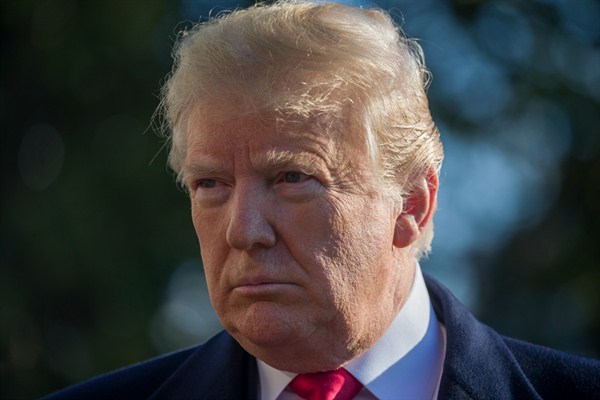Back in the early months of Donald Trump’s presidency, I took a playful stab at imagining a retrospective “view from 2019” of his first two years in office. Given that it’s now 2019, it’s only fair that I compare my predictions with how things have actually turned out. Unsurprisingly, I was off on many of the details. On the broader themes, I was closer to the mark—with one major exception, where I was flat-out wrong.
To begin with the details my fictional narrative missed, I wrongly assumed that the so-called adults in the room, who were ascendant within the administration at the time, would not only stick around but also continue to normalize Trump’s presidency. The events of the past two years have made it clear that this was too optimistic. With the resignation in December of Defense Secretary James Mattis, the last of the adults—and the last of “Trump’s generals”—have parted company with their impulsive boss, a procession of exits that began with the unceremonious firing-by-Twitter of then-Secretary of State Rex Tillerson in March 2018, less than a year after my column appeared.
While Mattis and Tillerson, along with former National Security Adviser H.R. McMaster and recently departed Chief of Staff John Kelly, reportedly did manage to rein in Trump’s most outlandish instincts for the time they stayed with the administration, it was similarly too optimistic to expect they would succeed at normalizing his approach to the presidency and U.S. foreign policy. Nothing about the past two years has been normal, from Trump’s communication style to his hostility toward core assumptions of U.S. foreign policy. He continues to publicly excoriate America’s allies and partners, vaunt its adversaries and enemies, and ignore the values and ideals that have historically informed American diplomacy, if often in the breach.

